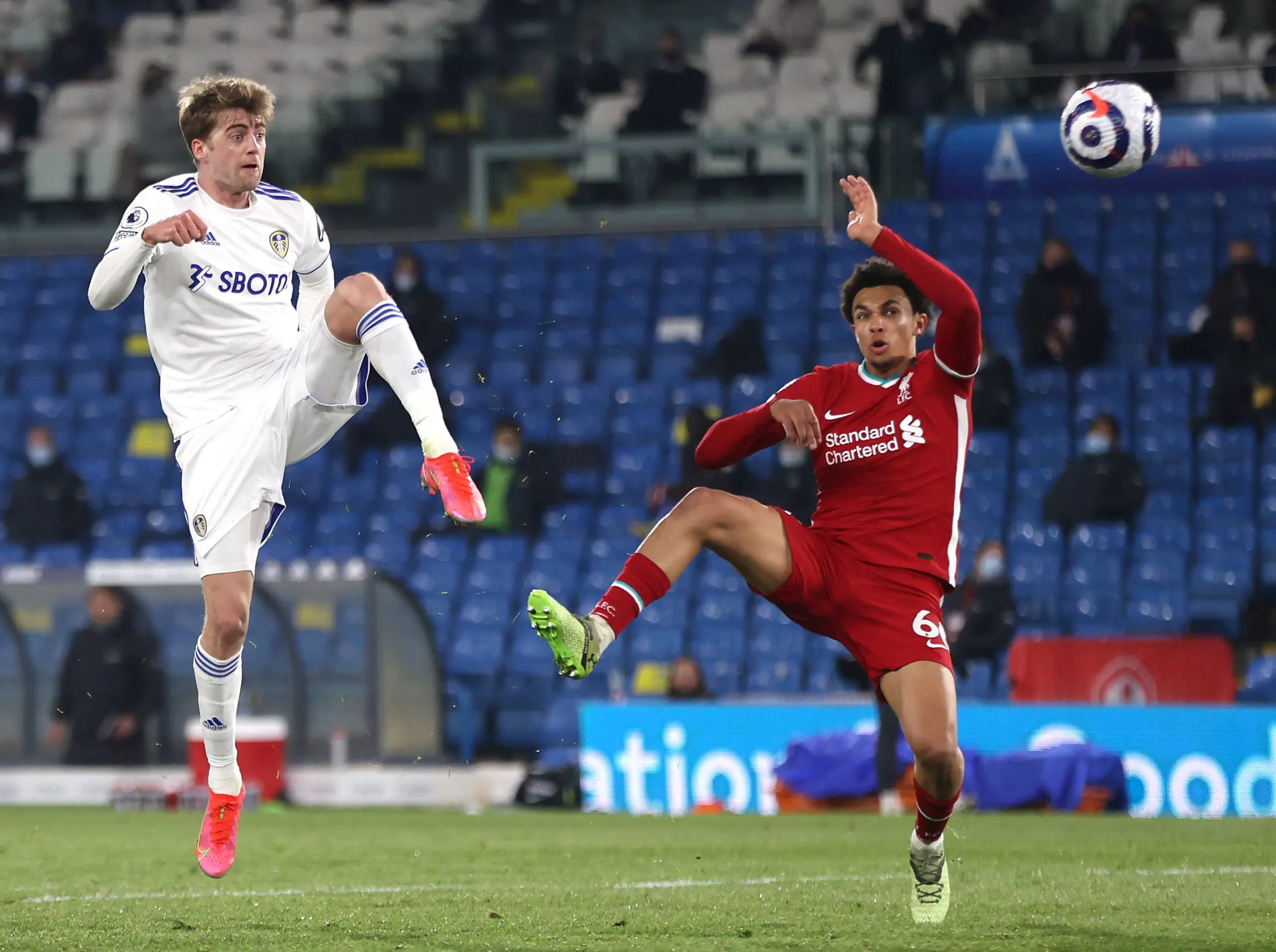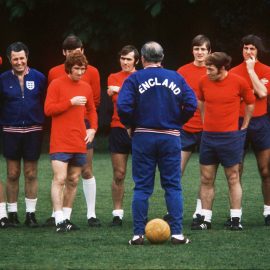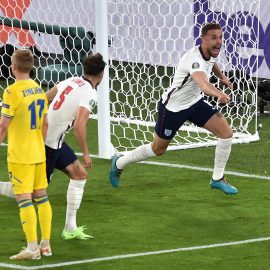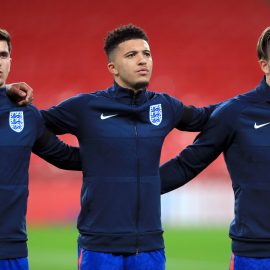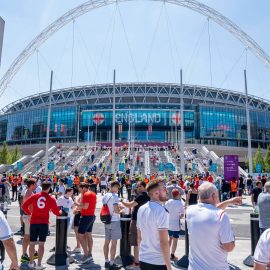An old rivalry will spark into life on Sunday, June 27, 2010, as England prepare to take on Germany in the first knockout round of the World Cup. To say there’s some history between the two countries is a gross understatement. But when faced with the cold hard facts of bygone days, the rivalry does tend to lean more to one side than the other. The feeling the English have of a genuine enmity with the Germans comes from a place far deeper than football, because the so-called football feud is one of illusion rather than pure truth.
This is not to say that the heated antagonism between the two nations when they meet on the football pitch is unfounded. Since the World Cup final in 1966, in which England won 4-2, the matches between the sides have been hotly debated, contested, and analyzed. The thing to remember is not just that England beat Germany that night, to win their first (and so far only) World Cup, but rather what has happened since. Germany have appeared in 11 major tournament finals, and won five of them, including three world cups. In contrast, England have appeared in two semi-finals. It’s not worth pointing out exactly how those ended.
That being said, England must be given credit for always believing in their side during these encounters. It’s not as if they haven’t beaten Germany since 1966, or at least come close. The 1990 World Cup semi-final was indelibly etched into the minds of the English as an “almost there moment” due the dramatic penalty misses from Stuart Pearce and Chris Waddle. The match was also famous for a photograph that encapsulated not only a moment in time, but also a decade of change across England. The sight of Paul Gascoigne crying after being shown a second yellow card of the tournament, effectively forcing him to miss the final had England reached it, seeped into the national consciousness and created an emphatic rise in the levels of support the country showed its team. With his England shirt pulled over his mouth and tears streaming down his cheeks, the player affectionately known as Gazza helped remind the fans what this game means to their country.
England and Germany were to meet again through the decade, but it wasn’t until 2001 that England finally lived up to the hype surrounding the antagonism. A 5-1 mauling of Germany in Munich, with little Michael Owen getting a hat-trick, proved to be another twist in the tale. As both teams eventually qualified for World Cup 2002, the result meant a lot more to England. Yet still, while the game’s full time score was intimidating, it brought England no closer to glory. It did, however, give England something to be proud of and headlines reading, “Don’t Mention The Score” proudly circulated the nation reminding a new generation of the bitter history between these two countries.
Perhaps now is the time, South Africa the place, for England to prove why this rivalry is indeed a rivalry. After years of hard fought battles and generations of both countries irreversibly affected by two world wars, football matches may seem insignificant. But as the world has progressed in the last 65 years and peace formed across Europe, these games remain as a symbol for the two sets of fans. And leave it to the English to remind us at every turn just how much these games symbolize a historic moment in time. According to an England supporter at the tournament, “This World Cup is exactly like the second world war,” he chuckled. “The French surrender early, the US turn up late, and we’re left to deal with the bloody Germans.” If they are indeed dealt with, it will send shock waves of the past across England and the country may well be on their way to re-living the glory they witnessed in 1966.
Danielle Warren is a freelance writer currently living in New York. She writes for and created the blog, For The Love Of Football. She is an avid fan of the beautiful game and translates that passion into writing about the sport.
Add Sportslens to your Google News Feed!
